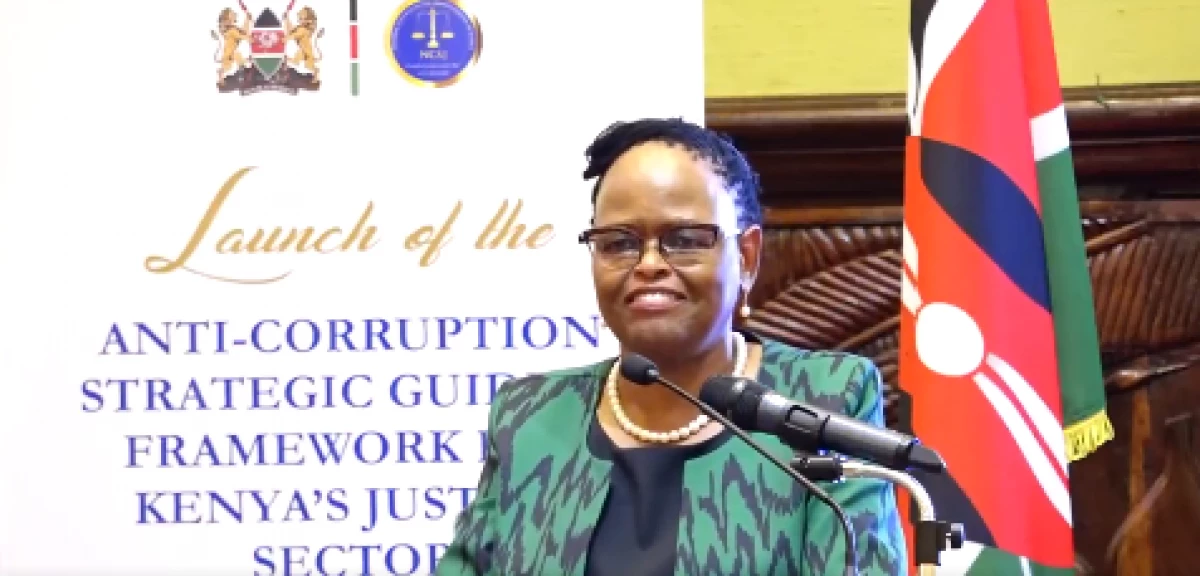Kenyan courts to establish independent committees to tackle corruption

Chief Justice Martha Koome.

Audio By Vocalize
For the first time ever, every court in Kenya will have an
independent committee to investigate corruption, separate from the government.
This follows a directive by Chief Justice Martha Koome on
Tuesday for the formation of court integrity committees to combat corruption
within the Judiciary.
The guidelines will also allow real-time sharing of
information and collaboration between key entities, including the courts, the
Office of the Director of Public Prosecutions (DPP), the National Intelligence
Service (NIS), the Ethics and Anti-Corruption Commission (EACC), and the National
Police Service (NPS) to combat corruption.
"The guidelines we’re launching today are based on our
agreement with State House, allowing different state agencies to work together
against corruption—not just the courts on their own,” said Koome.
EACC will
not be a member of the court integrity committee because of the mandate but
will play a guidance and training role. The court integrity committees will
allow court users to raise integrity concerns, promote ethical compliance and
enhance accountability in judicial processes.
"I’m
ordering that every judge, before every case starts, read the anti-corruption
declaration we gave them, right in front of the public,” said Koome.
The launch
of these guidelines will allow various state agencies to collaborate and
exchange information directly to catch corrupt individuals in the courts.
Courts will get direct reports about corruption claims.
"The
EACC has already finished looking into the corruption issues in the judiciary,
and we’ve figured out what needs to be done, especially now that we’ll be
working together,” said EACC Director Abdi Ahmed Mohamud.
"Once
the new information system is up and running, everyone we’re working with will
be able to access all the info with just a click. We’re also rolling out body
cameras to keep things transparent when the police are doing their job,” added
Police IG Douglas Kanja.
DPP Renson Ingonga
was also out to strengthen the capacity of his office.
"I’m
asking for more funding to hire prosecutors who’ll handle corruption cases and
help speed up the process,” said DPP Renson Ingonga.
"We
need to protect whistleblowers. The more we see solid evidence of corruption being
ignored, the more it chips away at public trust. Judicial efficiency needs to
be clear. And the next big question is: How do we get back the stolen money
that’s sitting abroad?" posed Law Society of Kenya (LSK) Faith Odhiambo.
The new
guidelines kick off right away.


Leave a Comment